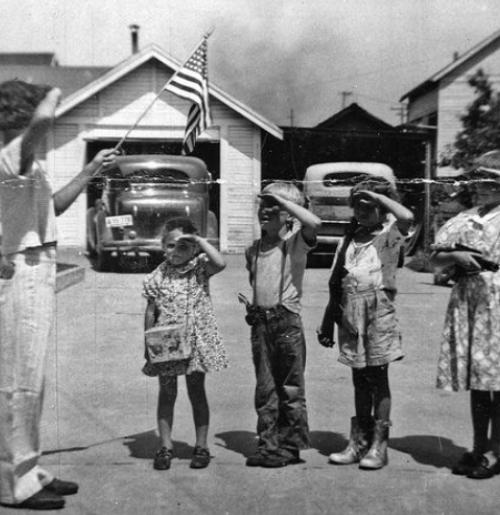The following is an excerpt from Memory and Identity: Conversations at the Dawn of a Millennium (Rizzoli, 2005), 65‒67 by Pope John Paul II. It was the last book published by the Polish Pontiff before his death.
If we ask where patriotism appears in the Decalogue, the reply comes without hesitation: it is covered by the fourth commandment, which obliges us to honor our father and mother. It is included under the umbrella of the Latin word pietas, which underlines the religious dimension of the respect and veneration due parents. We must venerate our parents, because for us they represent God the Creator. In giving us life, they share in the mystery of creation and therefore deserve a veneration related to that which we give to God the Creator. Patriotism includes this sentiment inasmuch as the patria truly resembles a mother. The spiritual matrimony which we acquire from our native land comes to us through our mother and father, and provides the basis for our corresponding duty of pietas.
Patriotism is a love for everything to do with our native land: its history, its traditions, its language, its natural features. It is a love which extends also to the works of our compatriots and the fruits of their genius. Every danger that threatens the overall good of our native land becomes an occasion to demonstrate this love. Our history teaches us that Poles have always been willing to make great sacrifices to preserve this good, or to regain it. The many tombs of soldiers who fought for Poland on different fronts around the world testify to this: they are widely dispersed, both at home and abroad. Yet I believe that the same could be said of every country and every nation in Europe and throughout the world.
The native land is the common good of all citizens and as such it imposes a serious duty. History amply documents the often heroic courage with which Poles have carried out this duty, when it was a question of defending the greater good of their native land. This is not to deny that some periods have witnessed a decline in this readiness to accept sacrifice in order to promote values and ideals connected with the notion of native land. At such times private interest and traditional Polish individualism have intervened as disruptive factors.
Every society’s formation takes place in and through the family: of this there can be no doubt. Yet something similar could also be said about the nation.
The native land, then, is a complex reality, in the service of which social structures have evolved and continue to evolve, starting from primitive tribal traditions. The question arises whether this evolution of human society has reached its final goal. Did not the twentieth century witness a widespread tendency to move toward supranational structures, even internationalism? And does this tendency not prove that small nations, in order to survive, have to allow themselves to be absorbed into larger political structures? These are legitimate questions. Yet it still seems that nation and native land, like the family, are permanent realities. In this regard, Catholic social doctrine speaks of “natural” societies, indicating that both the family and the nation have a particular bond with human nature, which has a social dimension. Every society’s formation takes place in and through the family: of this there can be no doubt. Yet something similar could also be said about the nation. The cultural and historical identity of any society is preserved and nourished by all that is contained within this concept of nation. Clearly, one thing must be avoided at all costs: the risk of allowing this essential function of the nation to lead to an unhealthy nationalism. Of this, the twentieth century has supplied some all-too-eloquent examples, with disastrous consequences. How can we be delivered from such a danger? I think the right way is through patriotism. Whereas nationalism involves recognizing and pursuing the good of one’s own nation alone, without regard for the rights of others, patriotism, on the other hand, is a love for one’s native land that accords rights to all other nations equal to those claimed for one’s own. Patriotism, in other words, leads to a properly ordered social love.
John Paul II served as Pope from 1978 to 2005. He was canonized in 2014.



